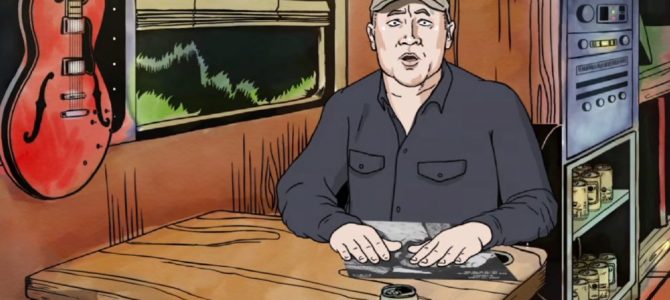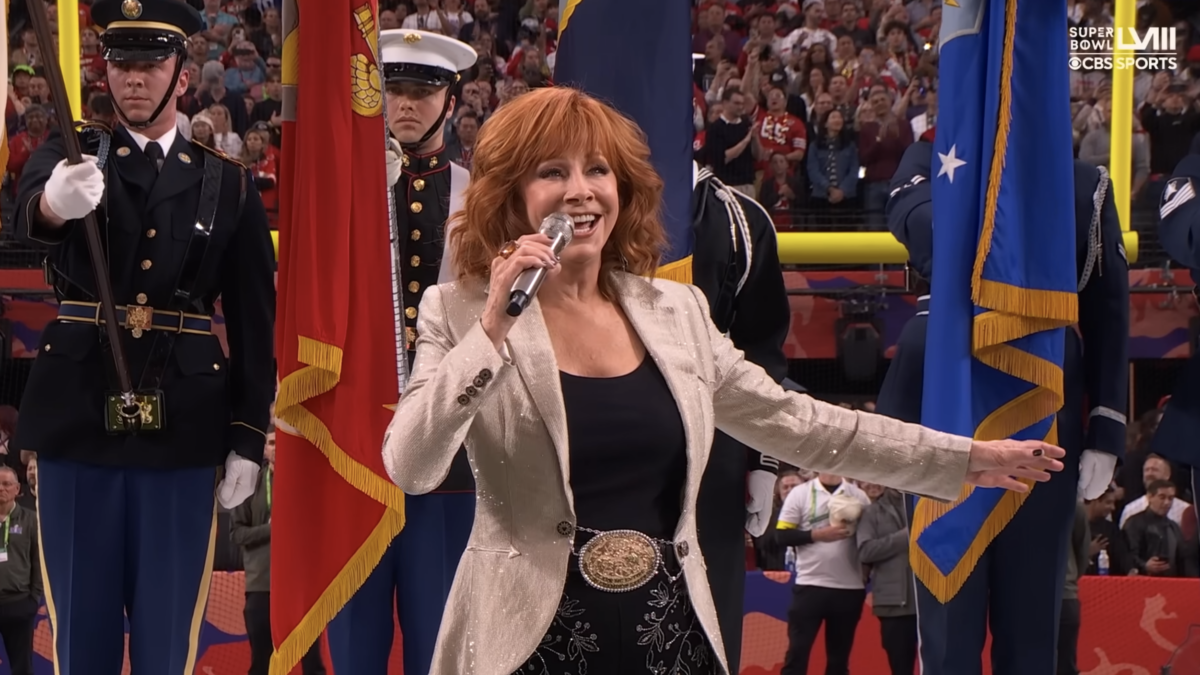
Mike Judge is the man behind the astute comedy “Silicon Valley” (HBO) and any number of other uproarious stories, from cult movies “Office Space” and “Idiocracy” to popular animations “Beavis and Butthead” and “King of the Hill,” maybe the only successful conservative animated comedy.
Now he’s got something new, and it’s again funny, unnervingly true, and all about America. “Tales from the Tour Bus” is an animated series he’s produced for Cinemax, about the stars of country music from the ‘50s onward. This is a much-neglected subject in American culture, and Judge is the right man for the job.
He is astute and vulgar and good-natured all at once. These are important qualities, rarely matched together, and they make his work unique. They are especially important when brought to bear on the subject of celebrity culture.
His all-American heroes, who are both brilliant and catastrophic, are Johnny Paycheck, Jerry Lee Lewis, George Jones, and Tammy Wynette. Waylon Jennings is next, this Friday. Lesser known, but no less interesting, characters are included in the ensemble. Their stories cross frequently and in unpredictable ways, but they have in common a combination of the crazy and the funny that reflects Americans’ desperate striving for success—as well as a reflection on a more natural and humble sense of the tragic aspects of our existence. More on that later.
Committing Most of the Sins They Tell Us About
It’s impossible to describe to Americans today how important country music was in the mid-century. The popular anthem politicians once sought was Wynette’s “Stand by Your Man.” Just the same, it’s impossible to miss the story of American celebrity, especially as told in Judge’s show.
This is mostly animation, but it’s real people talking, witnesses, so to speak, to their lives. This is rare, partly because it’s too funny and shocking, but partly because in real life people don’t usually tell the naked truth. The show obviously has some admiration and respect for its legendary subjects as much as their unknown witnesses, but it allows every facet of American life to come to life on screen, whether or not it’s legal, moral, or admirable.
If you think Hollywood or recent pop music is weird or morally corrupt, you need to see this. The stars of country music, well-beloved in America and selling untold tens of millions of records, are often people who came from nothing, men of remarkable self-destruction through alcohol and drugs, and not infrequently involved in shooting guns of various sizes at people for no good reason. The rampant sexual promiscuity and financial irresponsibility are comparatively tame.
Inasmuch as they came from the gun-loving part of America, some of this is not surprising. It’s their popularity with normal people that’s harder to explain. One way to put it is, Americans aren’t satisfied with hearing the witness of God in church. They are republicans in their hearts, and men of judgment. They want to hear both sides, and they want to see for themselves. That’s part of freedom—in America, the devil always gets his due.
Think about the strange respect shown the greatest country star in our times, Johnny Cash. He’s more believable than a fresh-faced seminarian and more interesting than a nun, because he’s committed most of the sins he’s telling us about (and others he’s maybe too ashamed to mention). Hollywood is even more ashamed—his very successful and prestigious biopic, “Walk the Line,” was nowhere near as truthful about misery and sin as Cash was himself.
What We Learn from Celebrities’ Fearful Stories
Judge seems to know all this and to have taken an interest in reminding Americans of what they learn from the often fearful stories of their celebrities. This is especially true of country music, because it produces the most American kind of celebrities. Of course, nobody gets to talk about others as less American. But consider the glamorous, Europe-imitating types produced by Hollywood and New York, especially.
Coastal celebrities encourage or at least suffer from an excessive intellectualization and even a kind of apotheosis. Endless meaning is mined from works that don’t often bear scrutiny. Mediocrity is repackaged as mystery. Fashions are transmogrified into epiphanies with the dull routine of magazine issues, awards seasons, and other events on the celebrity calendar. Celebrities’ opinions about matters moral and political are endlessly published. Their dress is supposed to make them into sophisticated, elegant creatures, God’s favorite peacocks.
Of course, celebrities are also humiliated routinely in various states of dishevelment. There is an entire ugly side of our desire to possess rare beauties! We are not satisfied to see them appointed divinities for a duration; we also want to treat them in ways we’d want people thrown in jail for were it done unto us.
The inequalities go both ways, and are strangely communicant. There are celebrities on talk shows and red carpets, married to other such celebrities, who made themselves celebrated in the first place by publishing sex tapes. There is indeed no business like show business.
Country Music Celebrities Are Somewhat Different
Country celebrities are somewhat different. They tend to do less bragging about their talents or intellectual powers. They are never the voice of a generation or the conscience of the nation. They are far less politically vociferous. In short, they are not gods or demigods. This doesn’t mean they’re not idolized, nor that they don’t strut or do most of the other things I mentioned. It seems the artistic pretense is the major difference between them and other celebrities.
Now, celebrity worship is not the only revealing part of American culture. Americans also like morality and really do believe in the virtues that make for a middle-class life. But they know that’s not all there is to life or to America. There are other calls the heart hears even if the eyes can no longer see the remarkably peaceful, prosperous world around us. Popular music seems to deal with that part of America.
Country music is perhaps especially American for this reason. Its patron saint, after all, is Hank Williams, who lived a short life yet one remarkably full of success and misery. It’s still great to listen to his songs, but the more you know about the misery, the more you wonder why Americans don’t get normal stars. In some sense, all these celebrities try to embody our fantasies and suffer the consequences. We’re not legally responsible, but aren’t we obviously economically responsible for paying for this spectacle of destruction? We supply in one sense the vanities and in another the bonfire.
Celebrity culture is under scrutiny in America just now, but don’t expect a serious examination of it. Judge’s show is certainly the beginning of such an examination. He does not wish to damn the celebrities, nor their audience. He wants to show that they’re all part of America and that there is some redemption to be had for people who suffered the catastrophic consequences of the most coveted inequality in America.
If they can live with it, they are a source of hope for normal people who suspect that, faced with the same temptations, they would similarly soar and then falter. We all hope we could survive the fulfillment of our dreams.









